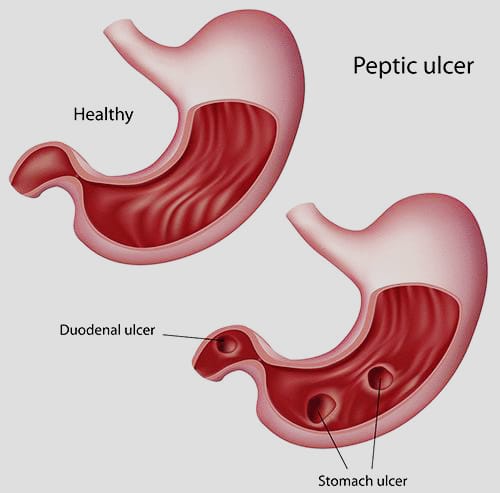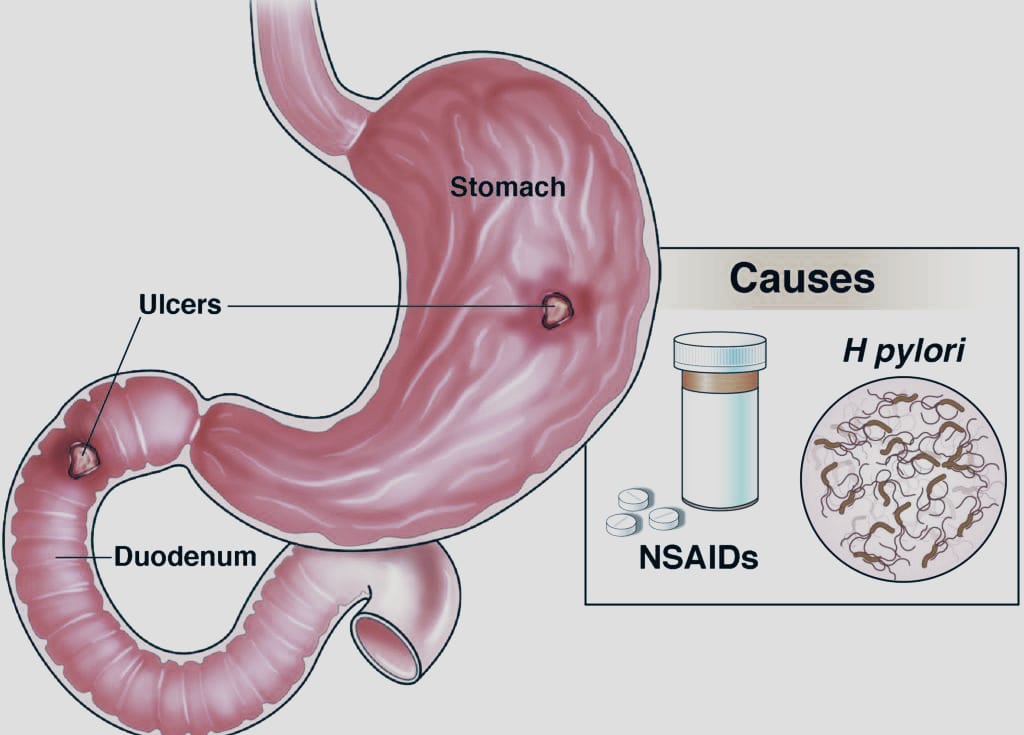When the stomach or small intestine’s inner surface is attacked by digestive tract acid, peptic ulcer develop. A painful open sore that may bleed can be produced by the acid. A mucous layer covers your digestive tract, which often shields it from acid.

Symptoms
- Sharp stomach ache
- Belching and bloating
- Heartburn
- Nausea
Causes
Peptic ulcer causes include:
- An organism: In the mucous layer that covers and shields the tissues that border the stomach and small intestine, Helicobacter pylori bacteria are frequently found. The H. pylori bacteria frequently does not cause any issues, but it has the potential to inflame the inner layer of the stomach, leading to an ulcer.
- Medications: Usage of certain painkillers on a regular basis. Aspirin and other nonsteroidal anti-inflammatory medicines (NSAIDs), might irritate or inflame the lining of your stomach and small intestine.

Risk Factors
In addition to the hazards associated with using NSAIDs, you may be at higher risk of developing peptic ulcers if you:
- Smoke
- Alcohol consumption
- Be stressed and mistreated.
- Consume spicy cuisine.
Complication
Peptic ulcers can cause the following if untreated:
- Intestinal bleeding: Blood loss can be gradual and cause anaemia, or it can be severe. Black or bloody faeces or vomit might result from significant blood loss.
- Perforation. When your stomach or small intestine are perforated by peptic ulcers, you run the risk of developing a severe abdominal cavity infection (peritonitis).
- Obstruction: Peptic ulcers can prevent food from passing through the digestive tract, making you feel bloated easily, and lose weight either via swelling from inflammation or by scarring.
Also Read About:

